Lioba Lenhart
JPSS Editor and Chairperson of IPSS Research and Publication Committee
Institute of Peace and Strategic Studies, Gulu University, Uganda
The Journal of Peace and Security Studies (JPSS) is a new peer-reviewed electronic and print journal, published by the Institute of Peace and Strategic Studies (IPSS) of Gulu University, Uganda. IPSS is a multi-disciplinary academic institution that was founded in 2003 in the war-ravaged region of northern Uganda as the Centre for Conflict Transformation and Peace Studies, and elevated to an Institute at Gulu University in 2007. The Institute engages in academic teaching and research, dissemination of knowledge and community service.
The Journal reflects the multi-disciplinary focus of the Institute. It publishes articles in the social sciences and humanities, broadly defined to include anthropology, sociology, political science, history, law, conflict and peace studies, religious studies and environmental studies. Articles that cut across disciplinary boundaries are particularly welcomed. Uganda is a key regional focus for the Journal, but contributions from the whole East African region and beyond are encouraged as well. The Journal actively seeks to disseminate theoretical, methodological and empirical knowledge and insights with regard to political violence, human rights, human security, governance, democratisation, social justice, welfare and development, with a focus on culture as a source of conflict and a resource for conflict transformation and peace building. It is expected that these studies can help to develop a broader comparative perspective on issues related to conflict, peace building and post-war reconstruction in Eastern Africa and beyond – in accordance with the University’s motto “For Community Transformation”.
Starting in 2013, JPSS intends to publish one volume of one to two numbers each year; each number will be devoted to a specific topic and edited by specially invited guests.
This first volume of JPSS on unfolding land conflicts in northern Uganda is edited by Michael Whyte, Quentin Gausset and Peter Henriques from the University of Copenhagen, Denmark. The contributors from Uganda and Denmark presented earlier versions of their work at the conference “Nordic Africa Days 2012: Unplugging Africa,”held at the University of Iceland, Reykjavík, October 18-19, 2012. Their research has been supported by the project “Changing Human Security: Recovery from Armed Conflict in Northern Uganda,” funded by the Danish Research Council for Development Research. In addition, two articles by researchers who were not involved in this project but have also been working on land conflicts in northern Uganda are included.
The volume broaches the issue of land disputes in northern Uganda that have become rampant in the aftermath of more than two decades of civil war between the Lord’s Resistance Army and the Government of Uganda. This conflict was accompanied by the full panoply of human rights violations: killings, rape, mutilations, lootings, abductions and forcible recruitment of children and youth. Ultimately, some 90 per cent of the Acholi population were forced to live in camps for Internally Displaced People; camp life, while providing marginally increased security, itself was responsible for severe disruptions of social life. Since the formerly displaced peoples’ return to their ancestral homes, conflicts over land have become a daily reality. Individuals, families and clans dispute boundaries, ownership and inheritance, as well as the attempts of public bodies such as Area Land Committees and District Land Boards to hold and allocate land for private sector investments. Underlying these conflicts are the social, political and cultural legacies of the last twenty seven years: high population growth, disappearance of marks for demarcating the land and death or loss of authority of knowledgeable elders during displacement, the existence of contradictory customary and state land tenure systems, weak land governance and political pressure favouring private investors.
The contributions to the volume explore how differently positioned people manage, mitigate and engage in conflicts in a setting of co-existing formal and parallel legal authorities. Debated issues include claims to land and descent, women’s rights to land and security, individual and communal rights in relation to commercial interests in land, and discourses of traditional versus universal civil and human rights in relation to property.
Acknowledgement
The Institute of Peace and Strategic Studies, Gulu University, would like to thank the guest editors of this first JPSS volume for their efforts. In addition, the Institute and Gulu University recognise and appreciate support from the Danish Research Council for Development Research both for the launch of the Journal of Peace and Security Studies and for funding a new research project on land and governance (“Governing Transition in Northern Uganda: Trust and Land”), to be jointly implemented by the Institute of Peace and Strategic Studies of Gulu University, the Department of Culture and Society of Århus University and the Institute of Anthropology of the University of Copenhagen from 2013-2016.
